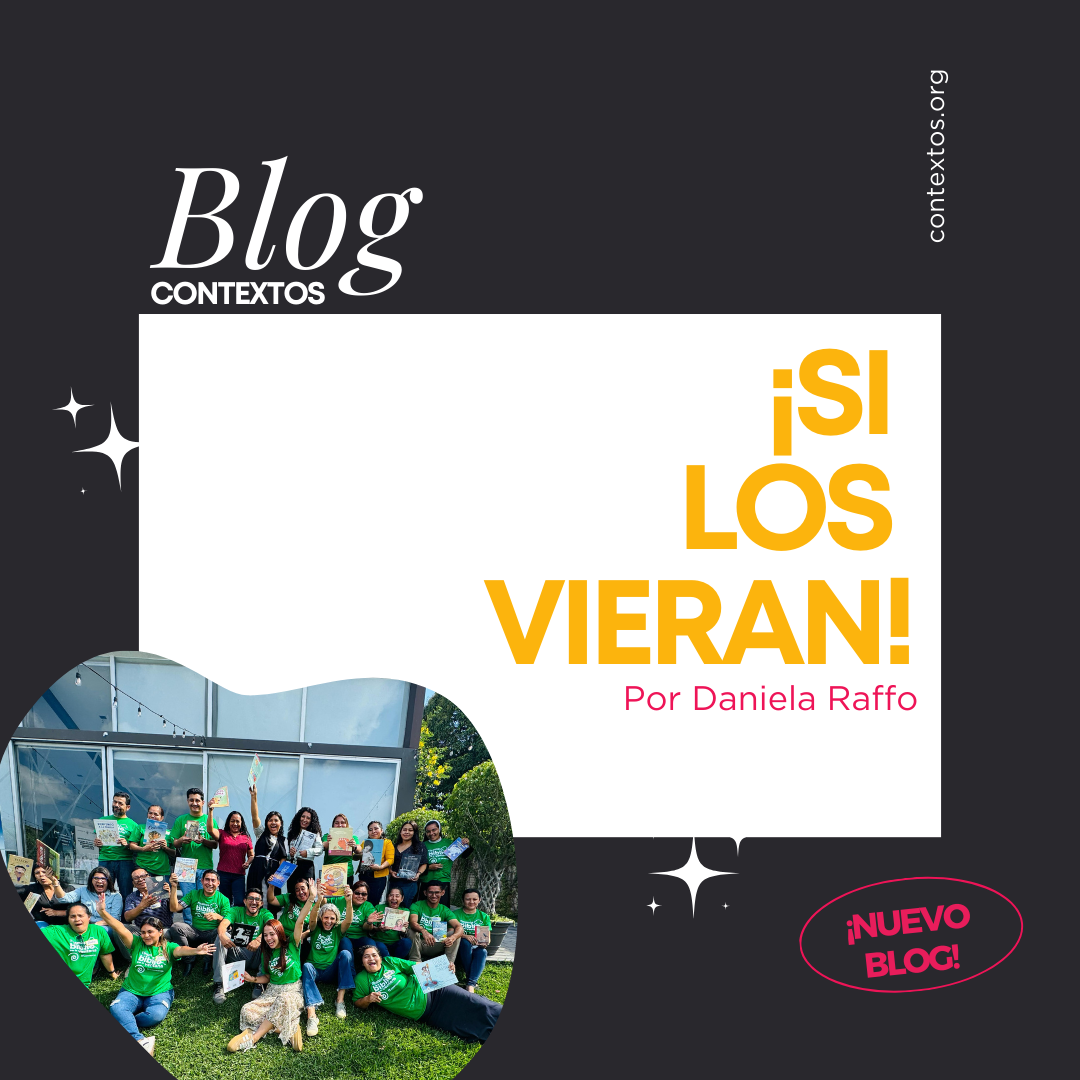marzo 7, 2017 by ConTextos
DÍA DE LA MUJER
Today is International Women’s Day. I’m tempted to make jokes about the other 364 days of the year. And I want to write about the fact that in El Salvador, we let go a male Country Director to embrace a power-team of three women leaders. That we found a model of leadership—four women: myself, Ale Mejia, Zoila Recinos, Maite Funes—that embraces collaboration and not hierarchy.
But as I return to Chicago after three weeks in El Salvador, there’s a different story of women that we should talk about…
Let’s Not Love El Salvador for the Maids.
About four years ago, walking with an Italian friend along the Costa del Sol—the soft brown beaches along the Salvadoran coast—we comisserated about the challenges of being a foreigner in El Salvador. It’s an unbelievably beautiful country, and for many Americans for whom Costa Rica is the only Central America they know, I tell them that El Salvador is far more stunning. The views more extreme, the contrasts more startling, the colors more vivid, the people more kind.
But that day, walking along the pounding Pacific, the warmth upon our backs as it is every single day in El Salvador, none of that seemed to matter.
My friend was raising her first child away from Italy, her family, her culture. And she told me about their recent visit back to Rome, how her husband had missed his home in El Salvador. He missed having a staff at home to clean dishes and take care of the details.
“I don’t want my son to love his country because of the maids,” she said.
And in all these years, that line sticks with me.
It’s easy to love El Salvador’s cheap labor: with an minimum wage of less than $200/month, finding affordable domestic labor in El Salvador is easy. A live-in nanny, a maid, a cook, a gardener, a driver. They might even earn below the minumum salary because of room and board— the schedule is 14-days on, one-day off… Domestic workers are both male and female, but the role of the domestica, the “muchacha,” the women who clean and raise children, is so endeared. These women who leave their own children and homes to take care of others’…
Today is my first day back in Chicago. I woke up this morning and had to get Ezzie changed and fed and cleaned and entertained, while also eating and organizing and emailing and prepping.
But during my recent visit to El Salvador, my mornings were different. I would wake and sit on the patio listening to the birds chirp and trucks roar by in the distance, listening to dogs barking as the sun beat against the wall of bamboo in front of me, a whistle of frogs and the wail of a siren…
In El Salvador, we had a maid. A nanny. Living with us. Rosa Hilda took care of Ezzie in the mornings and all day long. And also took care of me.

Rosa called Ezzie “Princesa” and spoiled her all day, and prepared beans and grated apples and mashed papaya and took so much care with the pillows and sheets so that Ezra would be just perfectly tucked in.
This is one of the most beautiful thing about El Salvador. While it’s never fair to spit stereotypes, Salvadorans are loving. They are kind and friendly and warm. It’s confusing how people so loving can be so violent, as the news and statistics tell. (And I like to joke that something sinister happens when you put kindhearted Salvadorans behind the stearing wheel where they become some of the worst drivers I’ve ever seen…)
But Salvadorans love deeply and kindly and spoil children with nicknames like Princesa, Tesoro, Amor, Linda, Bella, Sol… a plentitude of platitudes.
In schools, you often notice the same. Teachers that don’t know kids’ names but call them by affectionate adages, shower compliments. I tell people that in El Salvador schools, kids receive incredible affect, but receive little academics. On the flipside, in the States, kids receive all academics, with almost no affect.
Meanwhile, Rosa Hilda can’t read. She didn’t know how to use the electric stove. Or the washing machine and, like so many Salvadoran nanas / domesticas / “muchachas” that I’ve known, prefers to handwash than rely upon anything with buttons. When reception called, the phone would ring aimlessly—she didn’t feel comfortable answering.
Rosa spent years working as a domestic in El Salvador as she raised her young children. Then worked years in domestic jobs in the USA to send money home. She told me about her jobs in LA and Atlanta… she was undocumented and I see her experience as exploitation, but she’s deeply grateful for the opportunity. “They gave me a bed and a bathrooom…” she would brag. As if these are privileges and not rights.
While she was in the USA, the drunk father of her kids sent a power of attorney concerning the humble properties she worked hard to purchase. She signed. And ten years later she came back to El Salvador with nothing, arrived to her home to realize she had inadvertantly sold it to that man. She didn’t know what she signed. She can’t read.
Rosa Hilda cried as she told me her story. And I cried with her. Rosa’s story, I realize, is probably the story of most women in El Salvador. And probably the truth for most women in the world.
Rosa knows I’m writing about her. I asked her permission. She told me that when she was little, women aimed to have as many children as they could—Rosa is the oldest of seven—and didn’t think much of their education. Now, she told me, it’s different. People know to educate their daughters.
So today, on International Women’s Day, I want to recognize Rosa Hilda. And all the women like her. And thank her, thank them—for helping raise my baby, our babies. And cleaning our homes and teaching our kids, and working for different opportunities for the next generation. Women who’ve been heart-broken and deceived but keep on working to raise kids with love, even when they’re someone else’s kids, in someone else’s home—and sometimes, in someone else’s country.
It’s a wild coincidence that today, International Women’s Day, is also Rosa Hilda’s 68th birthday. So Happy Birthday, Rosa Hilda. Thank you! For all you do and have done. And sorry… for how cruel the world has been.
So Rosa Hilda, know that I don’t love El Salvador because I can rely on your help. I love El Salvador despite what it’s done to you. I love El Salvador not because of the maids, but because the maids like you inspire me that the country can be different in the future.

Recent Posts

¡Si los vieran!
Por Daniela Raffo ¡Si los vieran! Bailando, sentados en el piso, poniéndose de acuerdo en qué libros usar o qué actividad hacer. ¡Si las vieran!…

¿Me puede contar una historia?
“Había una niña que empezó, acá, en la escuela desde parvularia. Ella se llevaba libros a su casa y en una libreta dibujaba la mejor escena…

Los libros que viajan con Luz
Por Laura Flores Es de mañana, un día cualquiera en Jocoaitique, departamento de Morazán. Luz mira cómo una señora mayor llegar a la biblioteca, toma…


